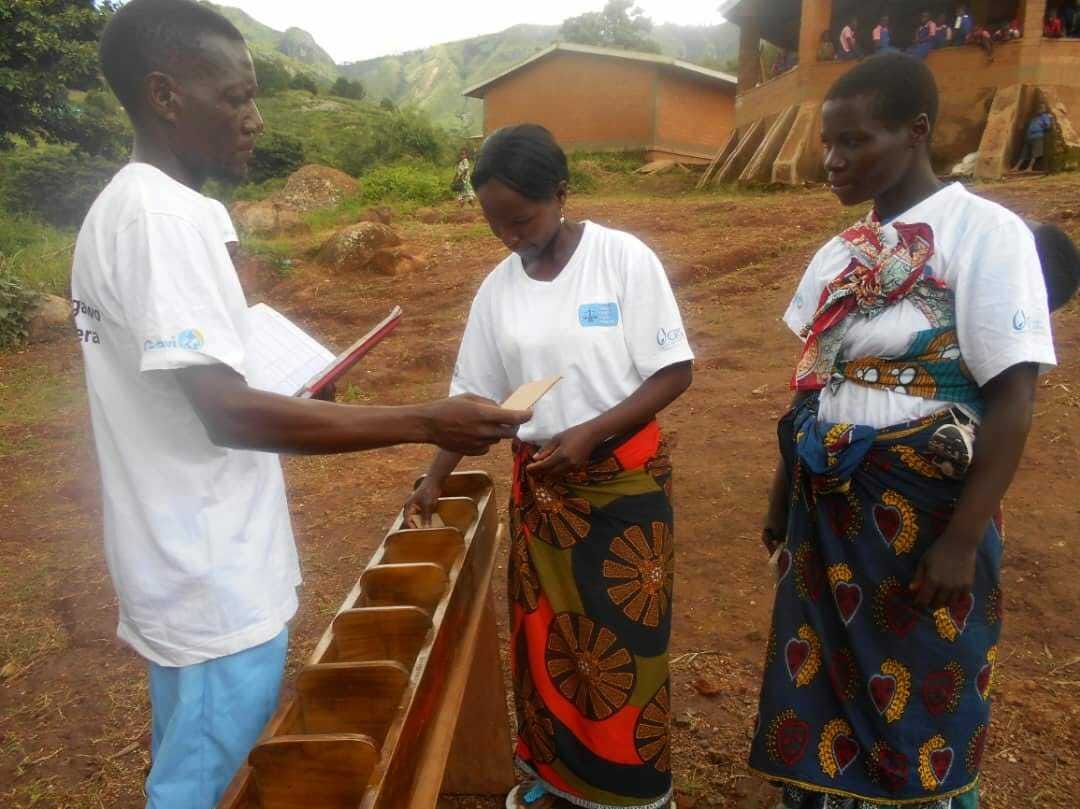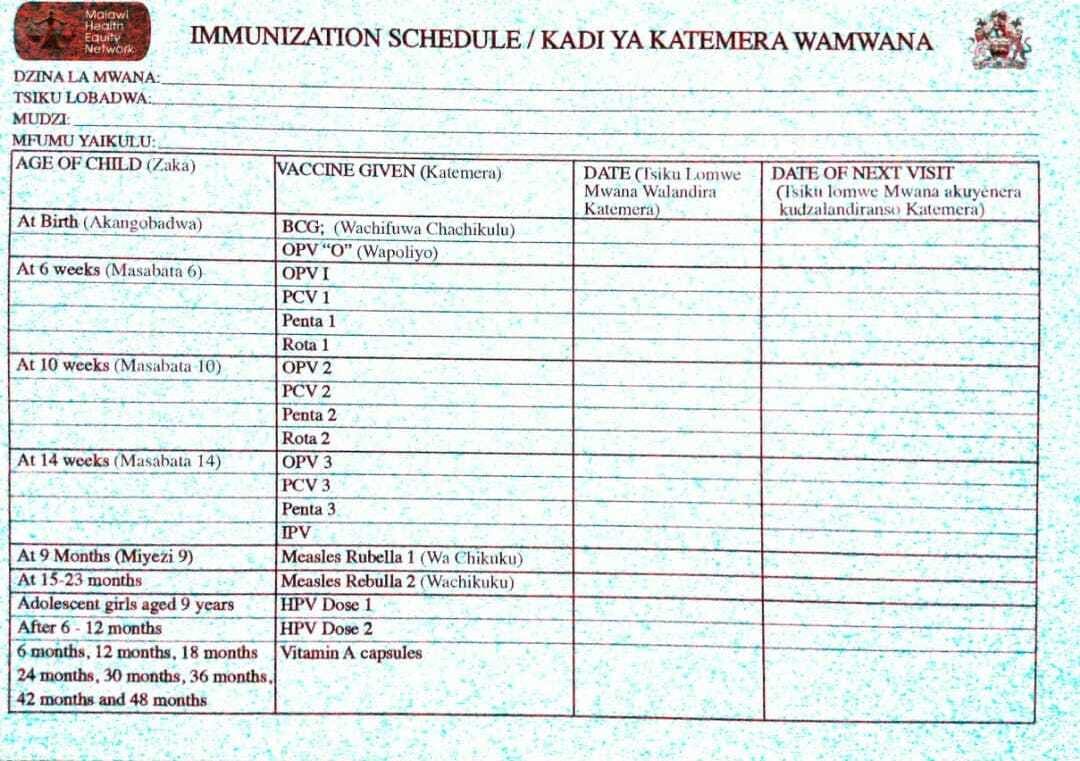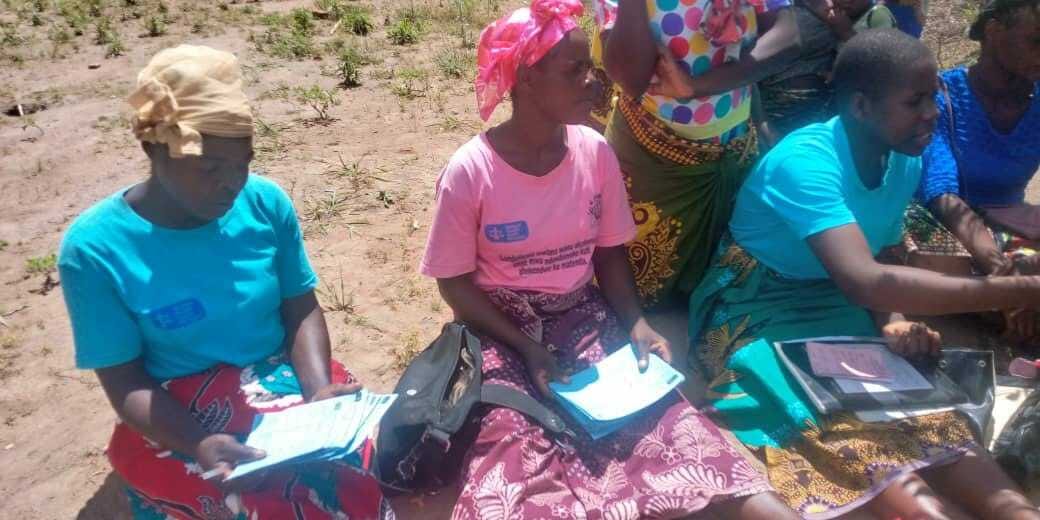
Malawi: Malawi has the highest immunization coverage, but there have been some patches of zero-dose children, which have been attributed to religious beliefs.
JOSEPHINE CHINELE investigates how the Malawi Health Equity Network (MHEN), in collaboration with the Ministry of Health, used Community Mother Care groups to track down immunisation defaulters and return them to under-five care.
His eight children were all delivered by traditional birth attendants, and none of them has ever visited a hospital.
He claims that despite the fact that none of his children has ever been vaccinated against any disease on the planet, they have never been attacked by any of those diseases, saying, "I have eight children and grandchildren, and they have lived a healthy life since they were born. Their bodies are strong, and they are rarely ill."
Sagawa's Church (in this area) has four families and their descendants, and they all wear long white robes during prayers and other occasions.
Every Saturday, the Church meets.
He also explains that their religion believes in God and that God is the only one who can heal sick people.
He also claims that community health workers have comprehended his faith's beliefs, and they no longer encourage his family to seek medical assistance or have their children immunised as they used to.
Sagawa's children and all other Church members around the world are excluded from Malawi's free under-five vaccination programme. The government is providing nationwide. This is dangerous to one's health. considering that this seemingly small group of missing children may develop infectious diseases and infect other children.
Interventions
Regarding missed or zero-dose children, among other issues, Malawi Health Equity Network (MHEN), Civil Society Organizations' Platform, is implementing the Health Systems and Immunization Strengthening (HSIS) Project with financial support from the Global Alliance for Vaccines and Immunization (GAVI) via the Ministry of Health (MoH).

The overall goal of the project is to help Malawi meet its targets for the Sustainable Development Goals (SDGs).
The project aims to achieve SDG three, which calls for the abolition of preventable deaths among newborns and children under the age of five.
It also aims to achieve Malawi Growth and Development Strategy's key priority areas through participatory health governance, such as lowering barriers to equitable and quality immunisation, allowing women, children, and communities to access quality immunisation services and health care, and improving the quality and uptake of immunisation services.
MHEN used this project to train community women, known as Mother Care Groups, who are in charge of coordinating child immunizations and antenatal clinics. They have also been tracking down children who have missed their vaccines and returning them to care to ensure their vaccination.
It has been discovered that the country typically has zero-dose children due to children who miss out due to religious beliefs such as Sagawa, and this was also perpetuated by the Covid-19 pandemic, in which women did not follow the immunisation schedule for their babies.
Community Mobilization
Even in the midst of the Covid 19 pandemic, Mother Care Groups have helped to educate communities about the importance of routine immunisation.
MHEN has 169 volunteer Mother Care Groups spread across the nine GAVI priority districts of Blantyre, Lilongwe, Mchinji, Dowa, Ntchisi, Kasungu, Mzimba South, Mzimba North, and Chitipa.
Stella Tambala, Tikondane Mother Care Group Chairperson based in Soche, Blantyre (Southern Malawi), says that immunisation of children has been difficult in the midst of the Covid-19 pandemic and that this is where Mother Care Groups come in.
Tambala claims that the default rate increased in March 2021, when the Malawi government launched the Covid 19 vaccine, because "women were afraid that their children would be given Covid 19 vaccine."
Tambala's responsibility, like that of all Mother Care Group members, is to follow up on all children who are eligible for immunizations, identify those who have missed them, and refer them to two under five clinics, Khola remote clinic and Mpalika health centre, where numbers were low.
For example, a typical under-five clinic day immunises 80 to 90 children, but in March, the figure dropped to 40 or less.
Gertrude Msamanyada, Chairperson of Chikondi Mother Care Group in Chilomoni Township, Blantyre, says her group members have a good working relationship with Health Surveillance Assistants (HSAs) under Chilomoni Health Centre, which aids in achieving desired results.

Doreen Ali, Deputy Director of Preventive Health Services (Community Services) at the Ministry of Health, says Mother Care Groups are a good initiative, but they require a sustainability plan to continue to be effective after the HSIS project ends.
Reaping Benefits
The Ministry of Health acknowledges that Mother Care groups have been instrumental in mobilising and encouraging caregivers to bring their children for immunisation even during the height of the Covid 19 pandemic.
Dr Mike Chisema, EPI Programme Manager at the Ministry of Health, says GAVI's assistance through the HSIS project grant has helped to ensure that people are mobilised to receive vaccines and that there are improved strong mechanisms to sustain high immunisation coverage.
Mother care groups employ a defaulter tracing model to follow up on immunisation defaulters and reconnect them with health workers. This is a well-designed mechanism that has increased immunisation coverage.
According to Dr Chisema, the HSIS project has reached a greater percentage of zero-dose children in all nine districts.
He says that the country has five to seven per cent of zero-dose children or socially unreached children, admitting that there are still pockets of such children, including those with religious beliefs (like Sagawa).
Dr Chisema says that because the HSIS project will be phased out soon, there is a need to get organised and prepared for its successor programme so that we can sustain the gains made in child health programmes and prevent emerging and re-emerging diseases.
Collaborated Support
Doctor Atupele Kapito-Tembo, a public health specialist and the lead for Capacity Building and Research for the HSIS project at KUHES, says the project has achieved a lot in the health systems, citing the delivery of immunisation services among other things.
According to MHEN Executive Director George Jobe, the overall goal of the HSIS project is to contribute to the achievement of Goal three for SDGs targets.
Jobe claims that, while Mother Care Groups have aided in the normalisation of child immunizations, the Ministry of Health must prepare in case another Covid 19 outbreak occurs.
“We need to take children’s future seriously. Children shouldn’t be subjected to death due to their parents’ fears,” he says.